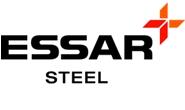Market Segment

March 8, 2017
Court Rules on Algoma Oppression Case
Written by Sandy Williams
Essar Steel Algoma’s oppression case against Essar Global received mixed results in a decision by Superior Court Judge Frank Newbould.
In a decision on Monday, Newbould agreed that the lease agreement made by Essar Global with the Port of Algoma (Portco) in 2014, was “unfairly prejudicial to, and unfairly disregarded, the interests of Algoma’s trade creditors, employees, pensioners and retirees.”
Essar Global Fund, then parent company of Essar Steel Algoma, sold the Port of Algoma assets to Portco and leased the land to it for a period of 50 years. Portco, a company almost entirely owned by Essar Global Fund, secured an eight year loan from GIP Primus, LP and prepaid $154 million in rent to Algoma, which was transferred to Essar Global in India. The port agreement stipulates that Essar Steel Algoma must pay for cargo handling and services and provide employees to handle the cargo services. Essar Steel is locked into the agreement for 20 years, paying approximately $25 million each year with no guarantee that Portco will continue to service the mill for the remaining 30 years of the agreement.
Judge Newbould agreed that terms of the lease were oppressive and ordered an amendment to the Portco agreement that that allows Algoma to terminate the lease, the cargo handling agreement, and the shared services agreement once the GIP loan matures and has been paid.
Said Newbould in his decision, “Further, if the cargo handling agreement continues and if [the Port] elects not to renew it after 20 years or after any three-year extension, the lease to [Port] shall terminate at that time along with the cargo handling agreement and shared services agreement.”
“Upon termination of the lease, Algoma shall repay to [Port] $4.1 million with interest from the date of termination of the lease.”
The court Monitor had argued for the transfer of ownership of the Port back to Algoma while keeping an agreement to repay GIP. Newbould, however, cited a decision that said the “court should not interfere with the affairs of a corporation lightly” and that oppression should be corrected with “a scalpel and not a battle axe.”
GIP agreed to finance the Portco loan because it was “bankruptcy remote” and a transfer of shares to Algoma would have a negative effect on GIP, said Newbould. Concern was expressed over Section 15.2 of the Cargo Handling Agreement that provided a provision, requested by GIP, that the agreement could not be transferred by either Portco or Algoma without the written consent of the other. Because of the possibility that Essar-controlled Portco could use this to veto a sale of Algoma, Newbould ordered it removed from the Cargo Handling agreement.
To add protection for GIP, he ordered an insertion should be made in the Materials Handling agreement that “if GIP becomes the equity owner of Portco, Algoma or its parent cannot agree to or undertake a change of control without the consent of GIP.”
“If there were no less obtrusive way to remedy the oppression in this case, I would order the shares of Portco to be transferred to Algoma. But in my view there are less obtrusive ways,” said Newbould.







